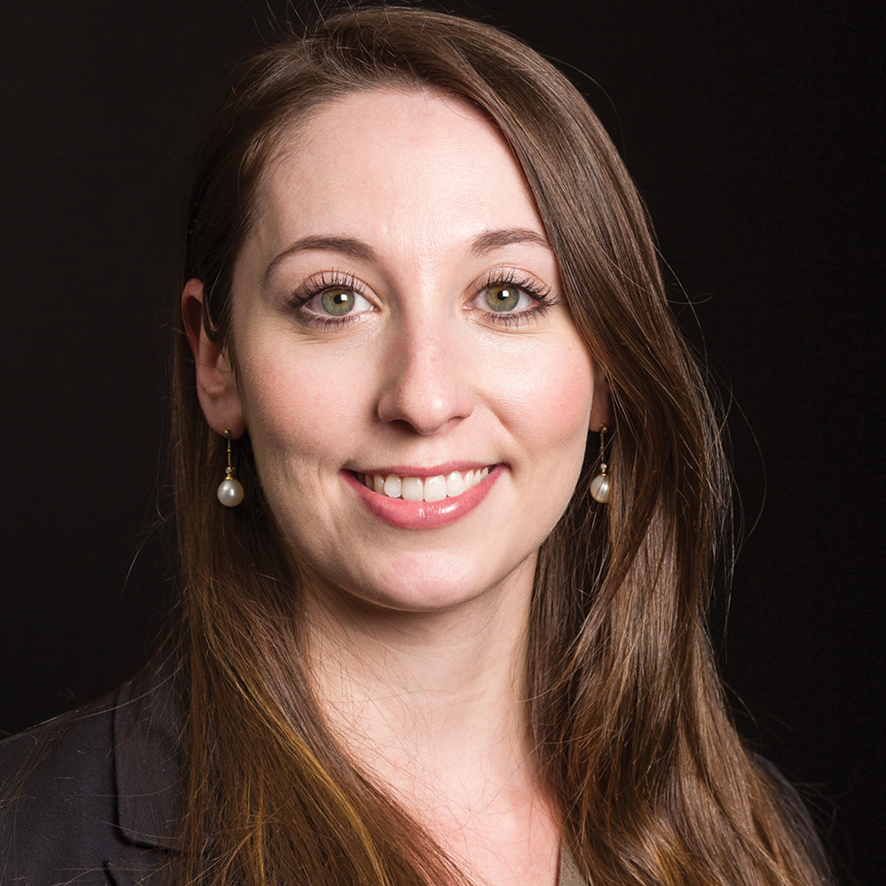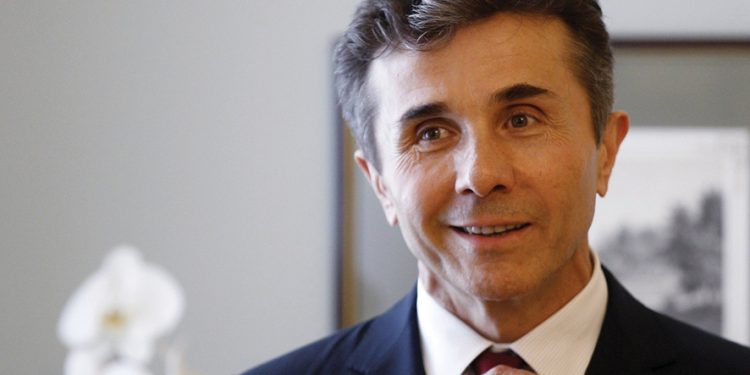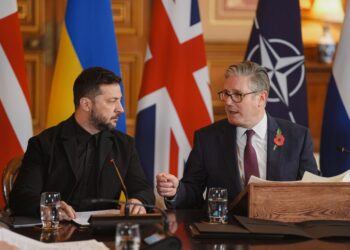In the 2024 edition of Politico’s influential people ranking in Europe, former Georgian Prime Minister Bidzina Ivanishvili is recognized as an oligarch and disrupter, ranking eighth. It marks the first time a Georgian has been included in the list.
Although Ivanishvili appears to have retired, he wields significant control over Georgia’s ruling party, Georgian Dream, and seeks to shift the country’s allegiance from the EU to the Kremlin, according to Politico.
The ranking is divided into three categories: doers (executive power), dreamers (idea drivers), and disrupters (those likely to bring unexpected changes). Radio Free Europe/RL’s Georgian Service sat down with its editor Zoya Sheftalovich to find out why Ivanishvili is on the list and who else was considered.
How does the list get made? What are the criteria that come into play?
The list gets made by the Politico newsroom, and I was the person who was in charge of gathering the details and writing the profiles. From early September, we started having meetings with groups of journalists and experts in various topic areas. We’ve got several Georgia experts on our staff, who were among those who contributed to these meetings. We started with a long list of 40 or 50 politicians.
And, obviously, things change – elections happen, people die… Prigozhin was one of the people on our list, but he was killed. So in September, we started with a long list, and then we narrowed it down over the course of several months to see who was still powerful, who wasn’t. There were a few people who had been on that initial list, but unexpected elections happened and the outcomes of those elections changed the way things panned out. So, for instance, Donald Tusk winning the Polish election was a big game changer.

It’s not a points-based system where we award X number of points for this criteria, or Y number of points for that criteria. It’s about what people in the newsroom are feeling, and a lot of it has also to do with the general theme of the list. To me, the 2024 theme was elections, the EU election, the US elections, and a huge number of elections going on around Europe and beyond. India goes to the polls, the UK will probably have an election, etc. 2024 will be quite a seismic year, and the theme of 2024 is going to be about how mainstream politicians in various countries deal with the increased surge in far right and far left support. And it was about the battle for the soul of Europe and battle for the souls of individual countries.
If Georgians continue down the path of resistance, then there could be a bright future ahead for Georgia that’s eventually going to see it in the EU
That was the context surrounding the Georgian question, because obviously we’ve got a real moment for Georgia where it’s an EU candidate country, it’s on the accession track. In some ways, it’s fortunate it is tied to Ukraine. And so it felt to me like it was part of this push and pull of something that’s going to be happening a lot in 2024: which direction will countries go in? And who is pushing them in those directions? To me, Ivanishvili was a really important person to highlight. Georgians, in all of the polls, strongly support EU membership. There’s overall backing for Western values in many ways, democracy and rule of law. But Georgia as a country is being held back, and the person who’s holding it back is Ivanishvili. But who does he answer to? Who controls him? To whom does that power actually belong? Who wields it? Or in whose benefit is it being wielded? It’s open speculation. People say Ivanishvili owes his fortune in large part to forces in the Kremlin, and that the interests he serves are in line with Kremlin interests, and that it’s in the Kremlin’s interest to lure Georgia away from the clutches of the EU and lead it down the path of Russian influence. That is really the reason why Ivanishvili was put on the list: to highlight that Georgia is at a crossroads. Georgia and its people are trying to walk down one path, and Ivanishvili is pulling them in the other direction.
Georgia wants European integration, but it remains to be seen if Ivanishvili will allow it to pursue that path. What happens if he doesn’t?
It really depends on Georgia and the Georgia population. We’ve seen what happened over the past year when the government went too far, when Georgian Dream went too far. We saw Georgians take to the streets en masse in protest against the foreign agents’ law. The thing that we know with dictators is that they only have power as long as they have power – as their power is not derived from elections, they don’t have that power confirmed and they don’t necessarily have deep support in public sentiment. And so when you see that facade slip, things can change. We saw that in many countries and in the Soviet Union, where it looked like someone was untouchable, until they weren’t. That could be the case with Ivanishvili. If Georgians continue down the path of resistance, then there could be a bright future ahead for Georgia that’s eventually going to see it in the EU.
And if he allows it, will he be taken off the Disrupters list?
We have a different list every year, and Ivanishvili has made his maiden voyage on the political 28. Looking ahead to 2024, it’s set to be a particularly consequential year. That is why he has the potential in 2024 to be among our top disrupters. If that opportunity is not taken, if Georgia is not able to get its foot in the EU door, then things will change and political will will change. There is a degree of benefit that Georgia is currently deriving from being coupled with Ukraine in terms of how the membership accession talks are being carried out. But whether that is still the case in 2025, if they don’t take the opportunity that they’ve been given, that’ll be another question.
Did Ivanishvili have to beat a lot of competition to get on the list?
He was someone I was thinking about. I wanted to have a Georgia on the list. I am myself a Ukrainian, and the perspective that I bring to the coverage is obviously slightly Eastern-European skewed. It hasn’t been in the past, because different people are in charge of the list every year.
Georgia as a country is being held back, and the person who’s holding it back is Ivanishvili
Georgia is a really interesting country, and it was high time for Georgian coverage. The president was also an option – she’s pro-Western and is fighting against her own government in order to push Georgia in the EU direction. Yet, this isn’t a list of the people we like most, nor a list of people we like the least: It’s always the people who actually have the most power. And, I mean, prove me wrong. I don’t know of a single Georgian, who has more power than Ivanishvili.
What about other European candidates for that list?
Putin is always a consideration. He was a notable absentee on my list. I felt Putin was the obvious choice. Putin has been on the list before, he was on our list last year. And I know he’s a finalist for the Time Magazine Person of the Year as well. But ultimately, when I look at why Putin remains in power, why he has been able to consolidate his power the way he has, it is about his enablers. It’s the people who enable him to remain in power. If it was a list of who has killed the most people, he’d obviously be high up on that list. But when I was deciding where to put people and who to leave off the list, I decided to make a statement: Putin is in power because people like Elvira Nabiulina and Sergey Lavrov allow him to wage his war. Nabiulina is a huge enabler of the regime and a key figure in keeping the Russian economy stable and allowing Putin to continue to do what he is doing. She is an excellent technocrat, and very, very good at her job, and all of the effort that she has put into keeping the Russian economy afloat has been quite spectacular in terms of the results that it has reaped. That’s why I wanted to highlight her role: people like her have a huge role to play. And they are the reason Putin has been able to get to where he has gotten to. He’s not a genius. I don’t buy this Western narrative about Putin being some sort of like evil genius. I don’t think he’s a mastermind. I don’t think he’s particularly smart. He is just very good at finding people and putting them around him, and ensuring loyalty and shoring up his support, shoring up his coffers, making sure that he gives just enough red meat to his electorate to keep some of them happy. I was bored of Putin being on these lists, because I think he gets too much credit, and it allows people like Nabiulina, who are enabling the system, to be able to slink into the sunset when he goes and pretend that “oh, we were on the western side all along, I was bringing it down from the inside the whole time.” No, you weren’t.
Even black PR is PR. Does that not apply here as well perhaps? Those you think Ivanishvili is cavorting with must surely be pleased with his appearance on the list, as proof of his dedication?
It is a catch-22 situation, but my goal is to expose those trying to stay under the radar. And I think that’s what Ivanishvili has really been trying to do. He’s still very much active politically, but he has been trying to convince us he’s just been tending to his dendrological garden for the last however many years. Anytime I can shine a bit of a light into the darkness, I’m ready to do so. Perhaps there is a degree of pleasure that comes from having that notoriety, from having that recognition? Probably. Some people really do enjoy the fact, and maybe Ivanishvili himself is quite pleased to have finally been recognized as the guy behind the scenes. But I think, ultimately, we can’t second guess ourselves as journalists about whether by covering someone we’re giving their ego a boost.
Some leading figures in Georgian Dream rubbished the list, while the chairman of the party claimed it was “a shameful, paid for” article, and that forces are out to tarnish his image and legacy. What would be your response?
It’s a common perception people have about the media that we’ve got someone pulling our strings. But our ownership structure is public. Politico is owned by Axel Springer Germany. Indeed, I was the person who compiled the list, I made the shortlist, I narrowed down the shortlist, I wrote all of the profiles, I spoke with our internal Politico folks. We’ve got journalists who have worked in the region, who know the region, who understand the region. I don’t have a horse in the race in Georgia. I don’t hate Georgia at all. I think it’s an incredible country.
So all the hate mail should come straight to you?
Straight to me. I honestly welcome it. I like making people feel something. Sometimes it’s the things that people feel they don’t like to feel, because it’s uncomfortable having a light shone into a particular corner of the dark recesses of one’s soul. But that’s my job. As a journalist, I’m not trying to make friends. Nor am I trying to make enemies: I’m just trying to reveal something to our readers and inform our readers of who these people really are. I would say that the vast majority of those who read the Politico 28 profiles would not have known previously who Ivanishvili is. And I think it’s important for people to know. That was my goal – to get people thinking and talking.
Interview by Vazha Tavberidze














